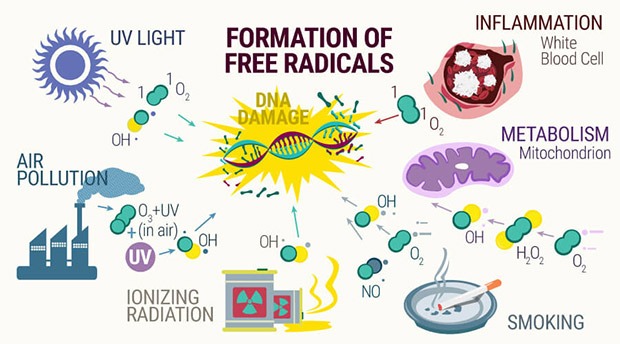There’s no doubt about it, CBD – a.k.a. Cannabidiol – has changed the game in the health industry. This wonderful cannabinoid found in the cannabis plant has been underestimated for decades but is now convincing many doctors and anti-Mary Janers of it’s proven therapeutic potential. All signs point to CBD being safe, powerful, and effective. But, despite its bright future, there’s so much more to discover. Even though you might already be familiar with the CBD basics, it can be difficult to separate the valuable and confirmed information from the myths, fake news, and full-blown fabrications in the hype surrounding cannabis and CBD. But fear not.
This article is a follow-up on one of our previous articles titled: “6 Facts about CBD you may not know”. As barriers to cannabis research continue to lessen, it’s important to establish the facts before you decide to buy your CBD product.
CBD oil is packed with nutrients
As an antioxidant and powerful anti-inflammatory, full spectrum CBD oil is said to be extremely nutrient-rich. Many companies have merged the concept of superfoods and CBD oil to create amazing products that contain nutrients crucial for your body and mind to function at its best. This includes antioxidants, amino acids, vitamins, and omega-3 & 6 fatty acids. Many of the nutritional components found in CBD oil are lacking in most of our daily diets, especially omega-3’s. These are essential fatty acids the body cannot produce naturally, but full spectrum CBD oil provides us enough to be considered a powerful, all-encompassing superfood. Among many other benefits, they’re found to help with stress and depression, alleviate joint pain, and lower the risk of heart disease.
CBD can help with menopause
CBD has lots of therapeutic properties, many of which can provide relief for those experiencing menopause. This is a time in a woman’s life when her menstrual cycle comes to an end and ovaries stop producing estrogen in the body. And when estrogen levels plummet, so do endocannabinoid levels and vice versa. This disrupts the endocannabinoid system and can produce a litany of side effects. While the jury is still out on whether or not it can relieve hot flashes, CBD increases endocannabinoid levels, which reduces symptoms relating to menopause including mood swings, sleep disturbances, skin care, bone health, weight gain, and pain.
CBD is neuroprotective
As it contains neuroprotective properties (i.e. serving to protect nerve cells against damage, degeneration, or impairment of function), CBD may be useful for treating neurodegenerative diseases that can cause temporary or permanent neural damage. Studies show that CBD is neuroprotective against both excitatory transmitter (glutamate) and oxidant (hydroperoxide), which induces neurotoxicity and cell death in the brain. Oxidative stress plays a significant role in neurodegeneration and can produce a wide range of health conditions including Alzheimer’s, dementia, epilepsy, multiple sclerosis (MS), Parkinson’s disease, and others. By protecting neurons and encouraging the growth and development of new neurons, CBD can prevent and limit the progress of neurodegeneration and also greatly improve recovery in patients.
CBD can be used to fight addiction
Perhaps one of the most overlooked benefits of the cannabinoid is its ability to prevent substance abuse addiction and even relapse for months. Ranging from smoking to drinking and everything in between, CBD has shown promising results of combating addiction by protecting (and even repairing) the brain from the damage of alcohol and cigarettes by interfering with brain mechanisms responsible for the signals of withdrawal. So we learn, not only is CBD highly effective at preventing relapses in those addicted to harmful drugs and alcohol, the therapeutic benefits provided are long-lasting, which is critical when recovering from substance abuse addiction. It’s no wonder why researchers are now looking into whether CBD can help fight the worsening opiate crisis.

